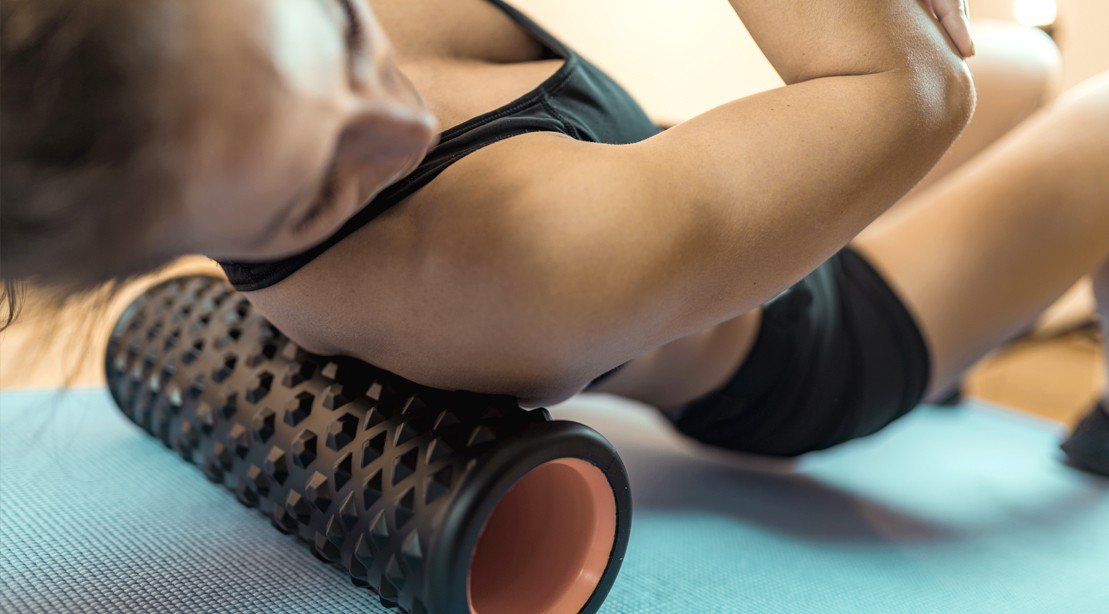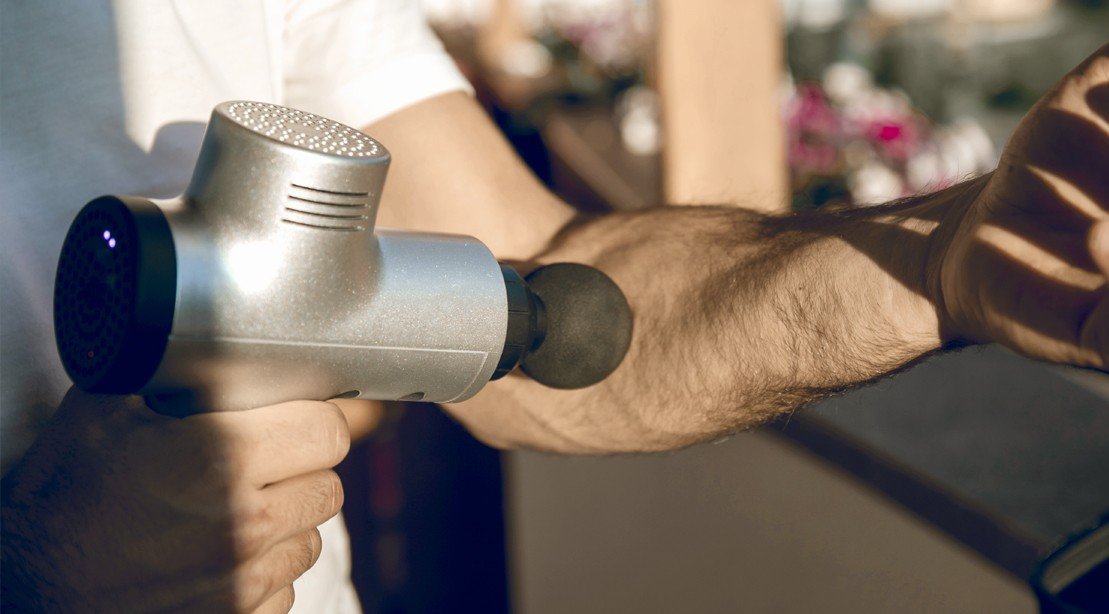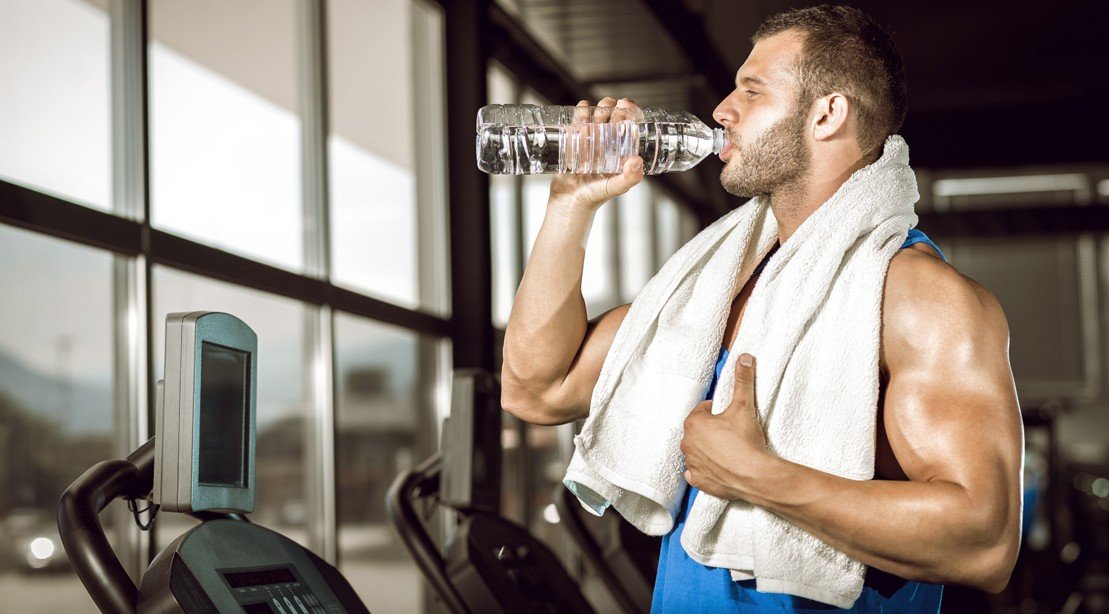Any increased intensity to your workout and exercise routine is liable to cause Delayed Onset Muscle Soreness (DOMS), which (although sometimes painful!) is nothing to be worried about as it is a natural reaction within your body.
The good news is that your body gets used to increased activity quickly, so DOMS should not become something that always happens and should lessen over time. But don’t let this put you off – it means you have made progress in achieving a more active and healthy lifestyle. It’s a sign that you are getting fitter, stronger and healthier!
Let’s face it, hard workouts equal hard results. The faster you can recover, the faster you can get back in the gym. If you are looking to speed up your recovery so you can get bigger and stronger much faster, then follow these 10 tricks.
Embrace Carbs
Eighty percent of what you see in the mirror is based off your nutritional habits. Working out will trigger anabolic responses in your body responsible for muscle growth. Proper post-workout nutrition can accelerate muscle recovery and new muscle growth.

After your workout, you should be consuming a meal with around 20 to 30 percent of your total carbohydrate intake. Our bodies are primed to absorb carbohydrates after a workout. In addition to having a good amount of carbohydrates, you want to consume 25 to 50 grams of protein.
I prefer this source of protein to come from a whey isolate to help ensure adequate leucine content and faster protein uptake. Your post-workout meal should be under 10 grams of fat. The higher the fat content of a meal the slower the absorption.
Keeping this meal under 10 grams will ensure quick uptake by your body.
Related article: 4 Great Tips On How To Keep Track Of Your Diet When Housebound
Take BCAAs

Proper recovery does not just happen after a workout, it needs to occur for hours before and after. Consuming BCAAs in between meals will help your muscles recover. Five grams of BCAAs in between meals will ensure protein synthesis is spiked throughout the day.
When choosing a BCAA product, make sure it is properly dosed. Your BCAA product should contain around two grams of leucine, one gram of isoleucine and one gram of valine.
Foam Roll
Foam rolling has many benefits: It breaks up little muscle adhesion that causes muscle imbalances. improve your flexibility, improve joint function, and keep you injury-free. I recommend foam rolling before and after a workout. Doing it before a workout can help you limber up and improve muscle function.

Foam rolling after a workout can help flush out toxins and lactic acid from a muscle. I recommend foam rolling for at least 15 minutes every day. Doing so will help prevent injury and keep you coming back to the gym for years to come.
Related article: Warm Up and Cool Down For Total Body Healing Using a Foam Roller With 6 Exercises
Ice Baths

There is no secret behind ice baths, they just plain work. After a tough workout session, practice session or game, many athletes jump in ice baths. Ice baths help to bring down inflammation and allow for recovery to happen much faster. To know more about ice baths and which type to get visit Urban Ice Tribe.
You can utilise this technique in your own program, especially if you aggravate something during training. Fill your bathtub up with cold water and dump in some ice cubes. Submerge your body in the cold water for 10 minutes. Repeat this as needed.
Get Mobile

Foam rolling isn’t the only mobility tactic you can use to help any jammed-up muscle or joint you may have. Rolling on a lacrosse ball, massaging tools or even using voodoo bands can all help you recover.
Various mobility tactics help to bring nutrient-rich blood to muscles that need recovery. Ensuring your muscles are clear of adhesion and improving your range of motion will increase your muscle strength and function.
Related article: The Best Solutions To Help Prevent Sleep Problems And Aid A Better Sleep
Micro Naps

In addition to a good night’s rest (if your schedule will allow it) I like to get in at least one 15 to 20-minute nap during the day. These little micro naps help to aid in recovery. Small naps are good for your heart, blood pressure, stress levels and even weight management.
While we sleep our bodies repair. Faster repair means getting back to the gym faster.
Balance Your Diet

A properly balanced diet is extremely important to your goals. Whether you want to lose body fat or gain muscle, it won’t happen with training alone. Consuming a well-balanced diet will help give your body the nutrients it needs to recover from training.
If your diet is lacking even one macro-nutrient it will hinder your recovery ability. Try to keep your carbs, protein, and fats all balanced. Avoid diets that are extreme, you will find yourself smaller and weaker.
Related article: Can’t Seem To Tone Up Your Muscles? Here Are The 7 Reasons Why
De-load

If you think you can train hard and heavy for weeks at a time, you are mistaken. In order to make good strength and muscular gains its important to take a one-week de-load period of your training.
Whether that means taking off for a full week or what I recommend is having a week where you use 60 to 65 percent of your normal workouts. These lighter workouts will allow you recover and the coolest part they will allow you to rebound and come back stronger.
Hydrate

Muscle soreness occurs from lactic acid buildup in a muscle. Drinking adequate amounts of water will help to flush out toxins from your muscles. Our bodies need water to function; a one percent dehydration will result in a 10 percent reduction in strength.
Proper hydration also helps to keep our joints lubricated. Drinking water will lead to improved gym performance and fuller muscles.
Related article: Why Water Is Guaranteed To Improve Your Athletic Abilities
Take Multivitamins

Vitamin C, D, E and ALA are all important for the recovery process. These vitamins help to prevent damage done by free radicals and help strengthen up your immune system. After a workout, free radical levels are higher in our muscle cells.
These vitamins help to break these free radicals apart. Multivitamins are looked at as an “insurance plan” for your body. Taking a multivitamin will help to prevent any nutritional deficiencies as well.

